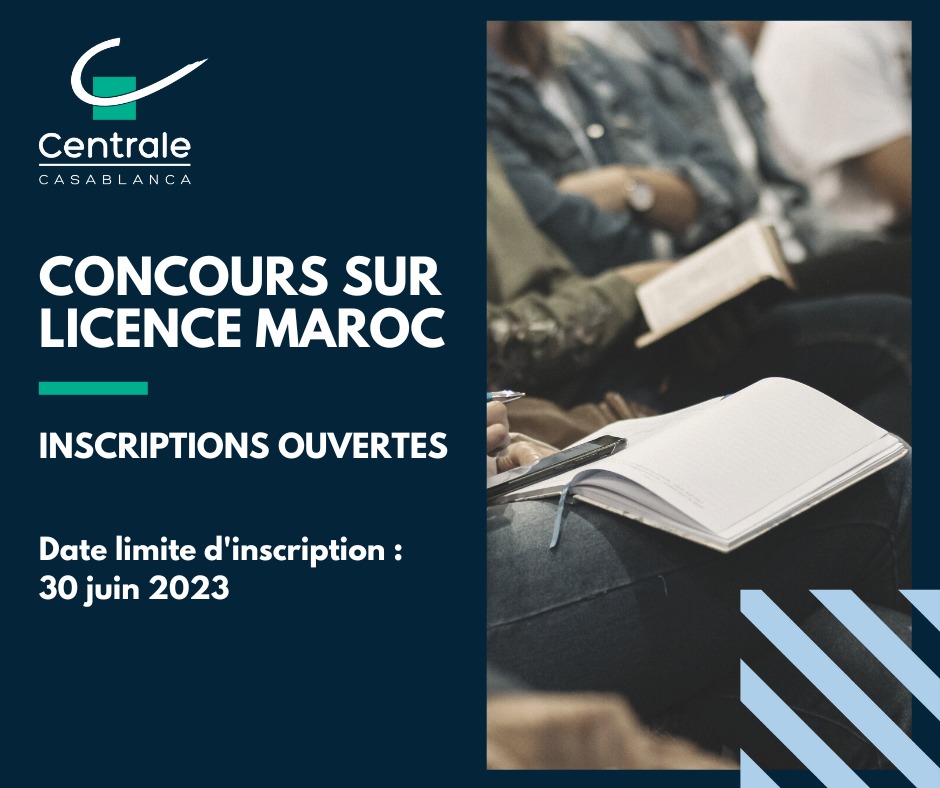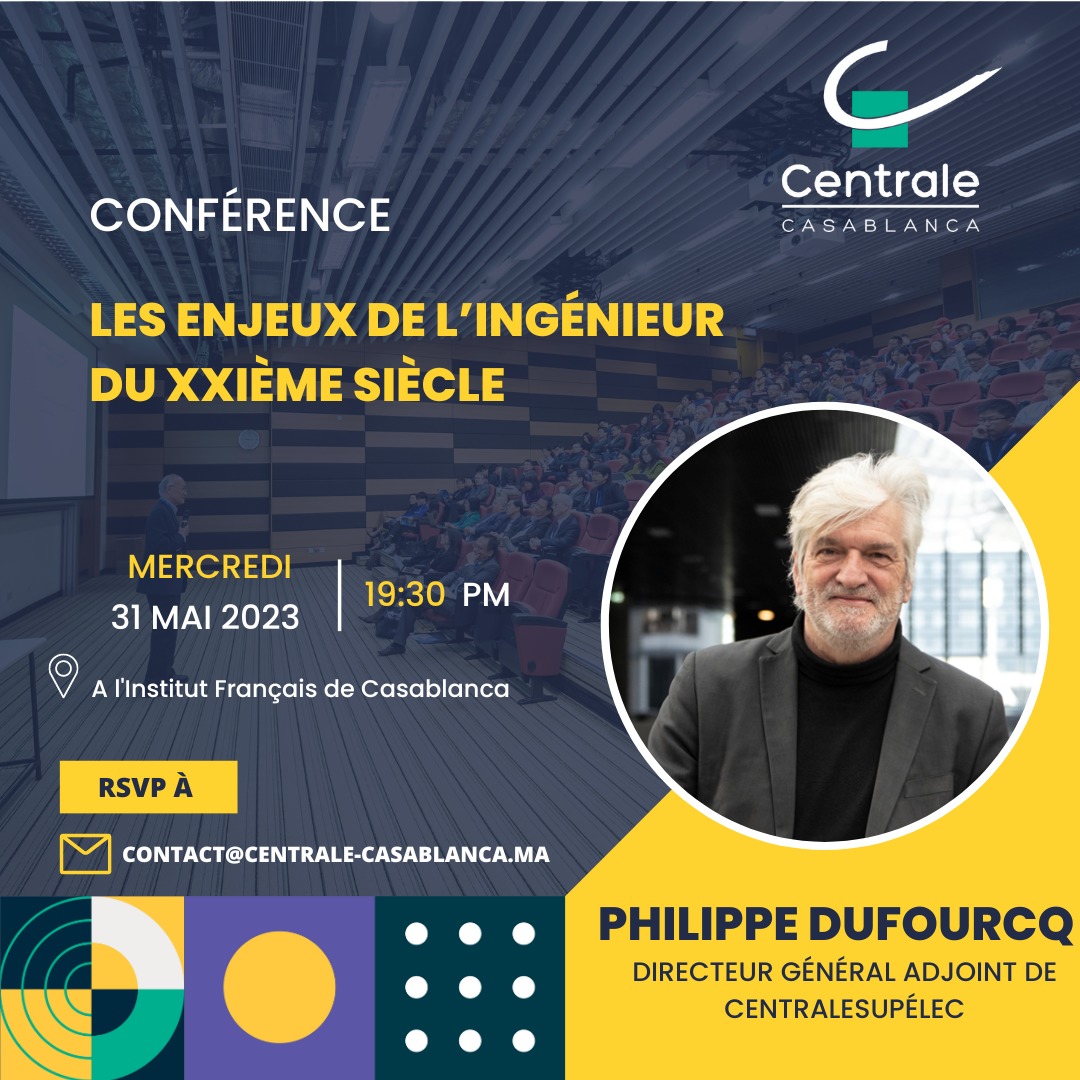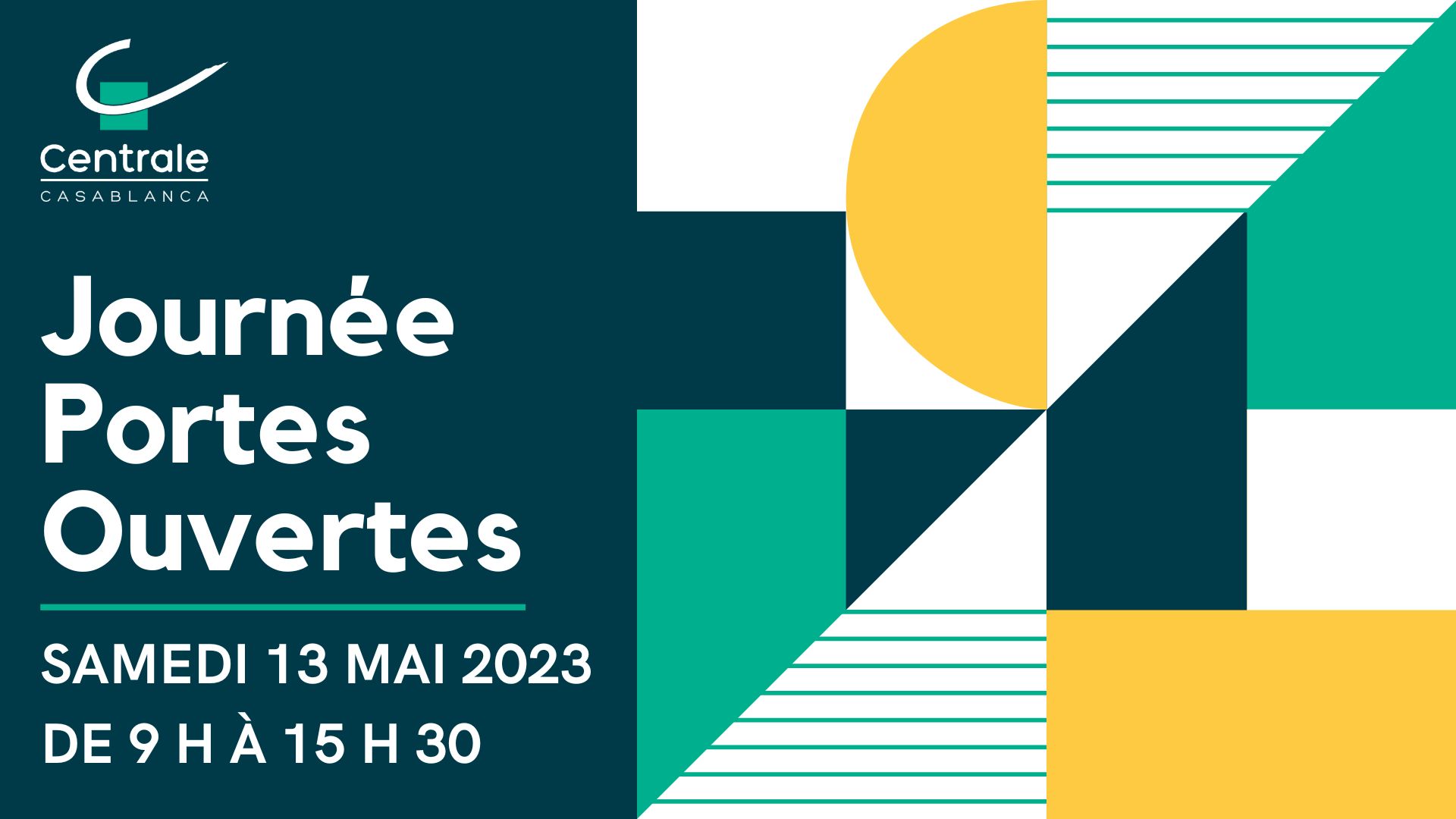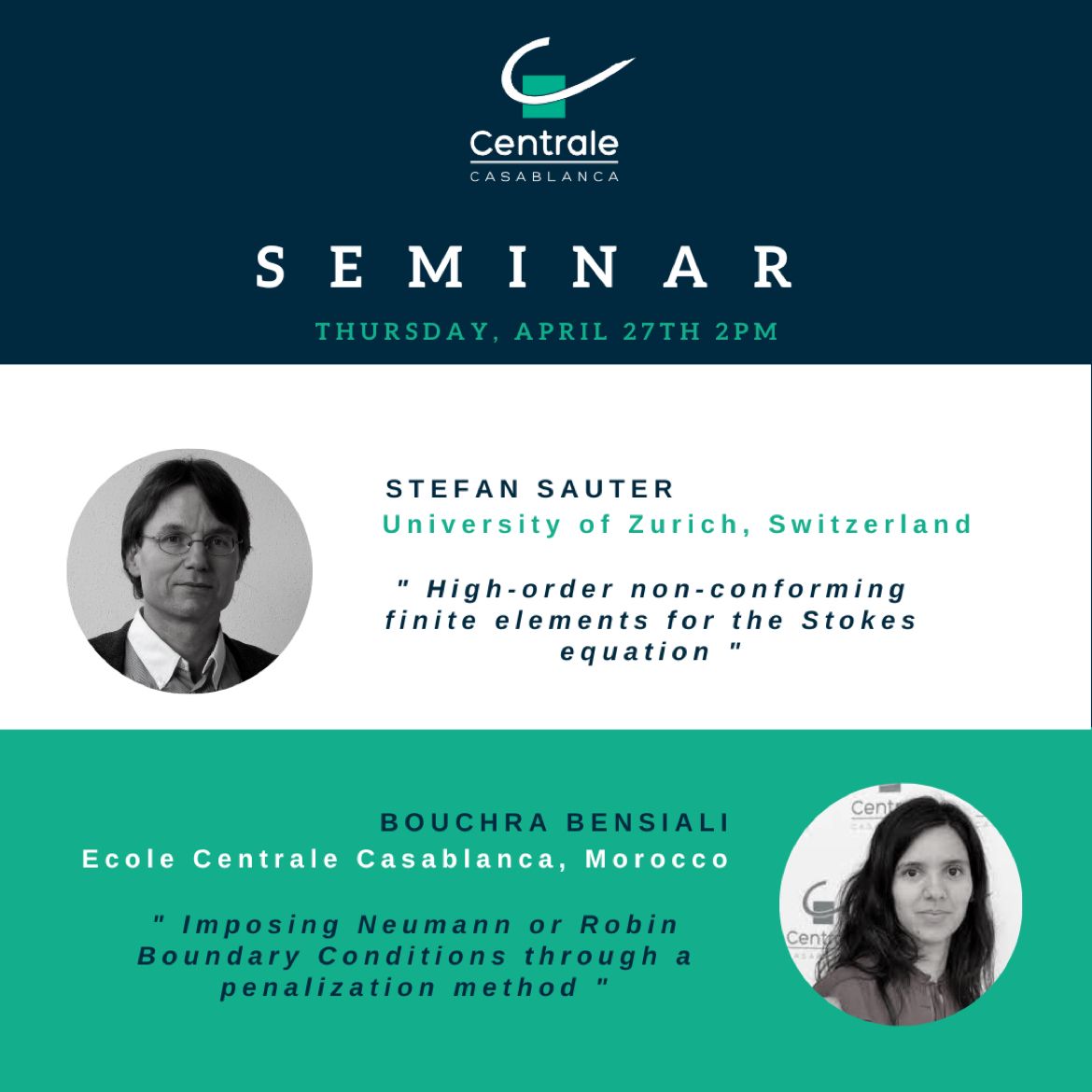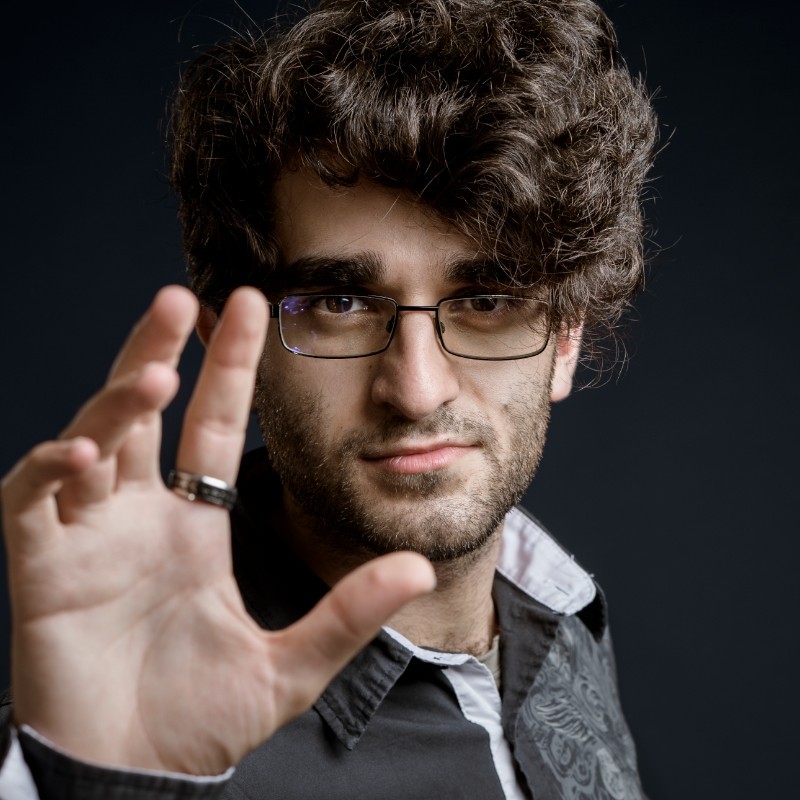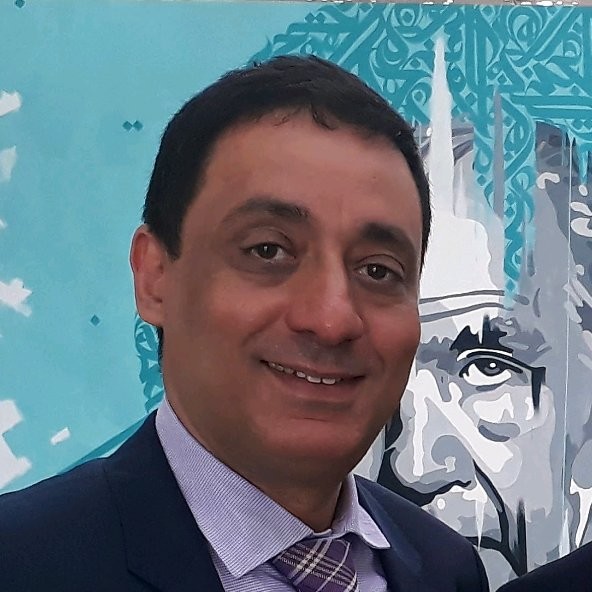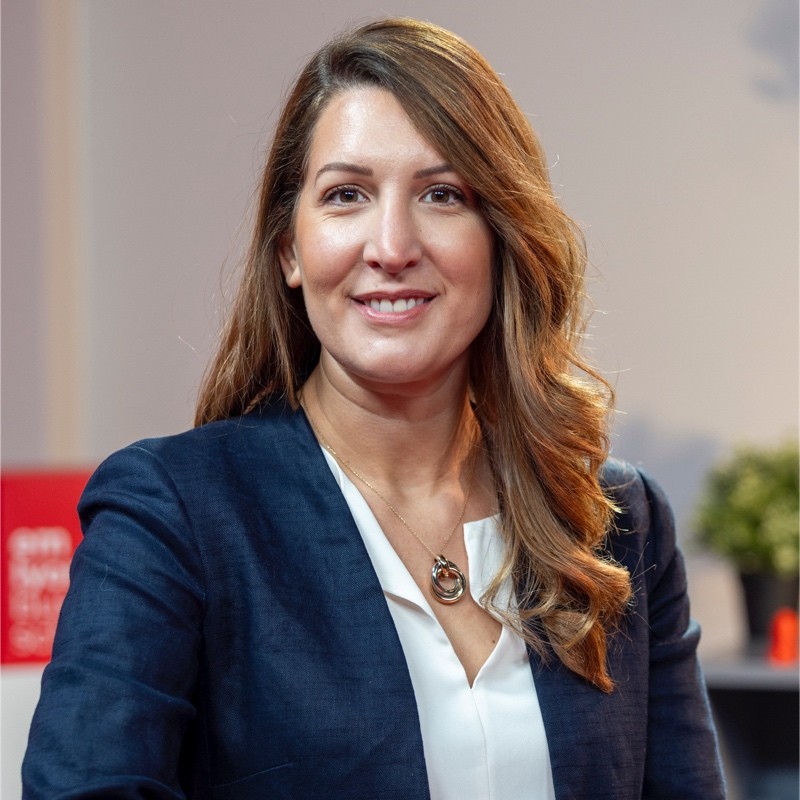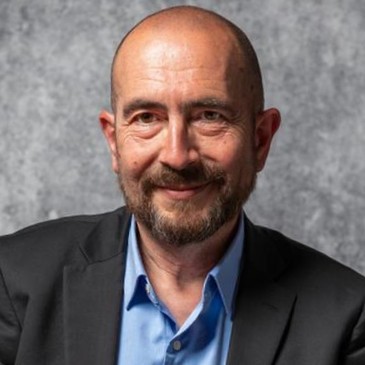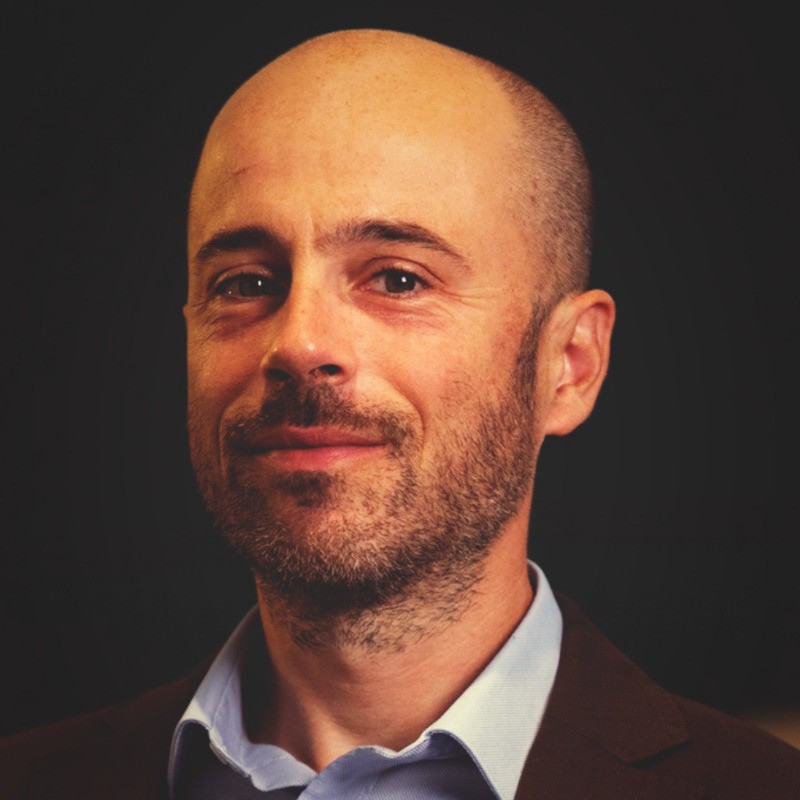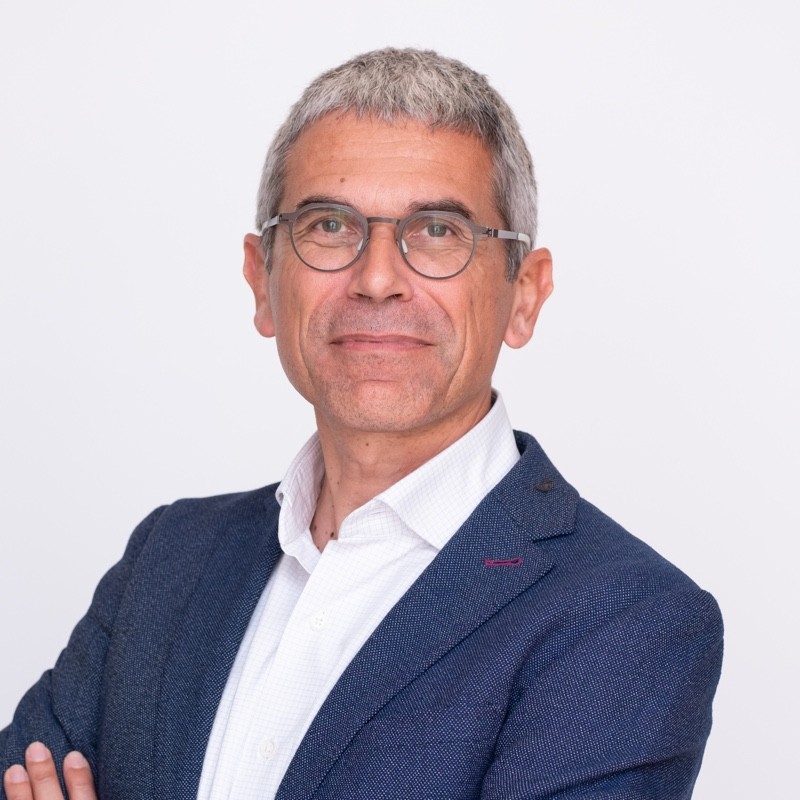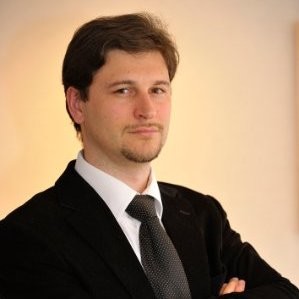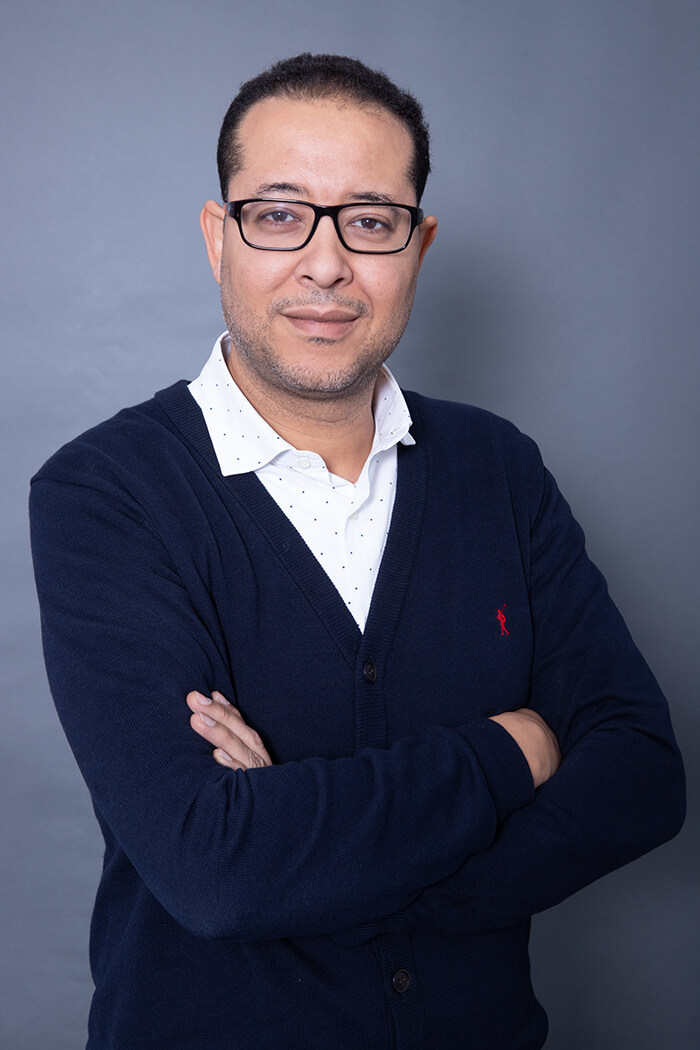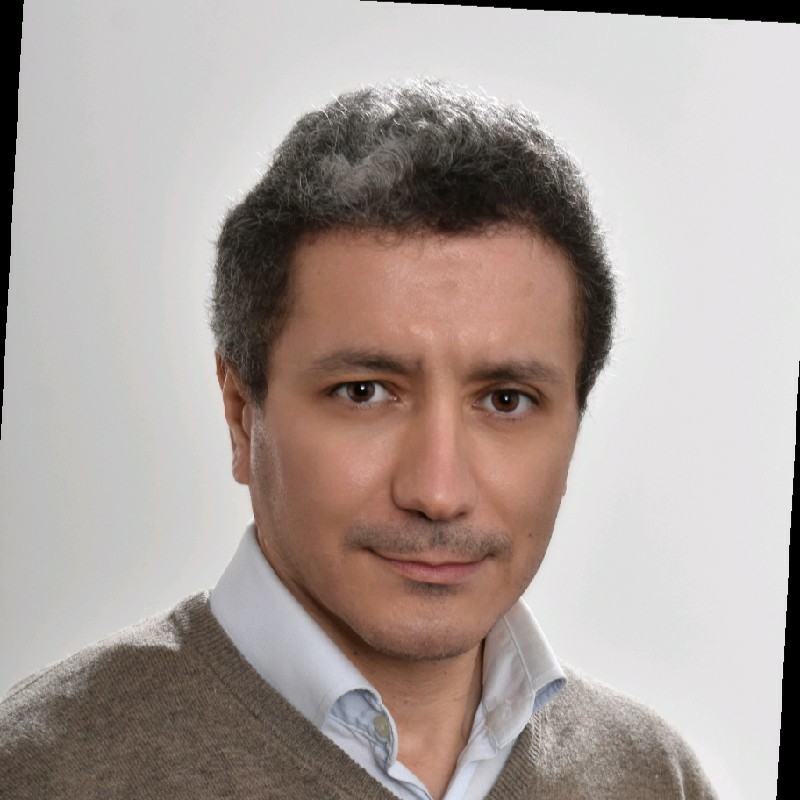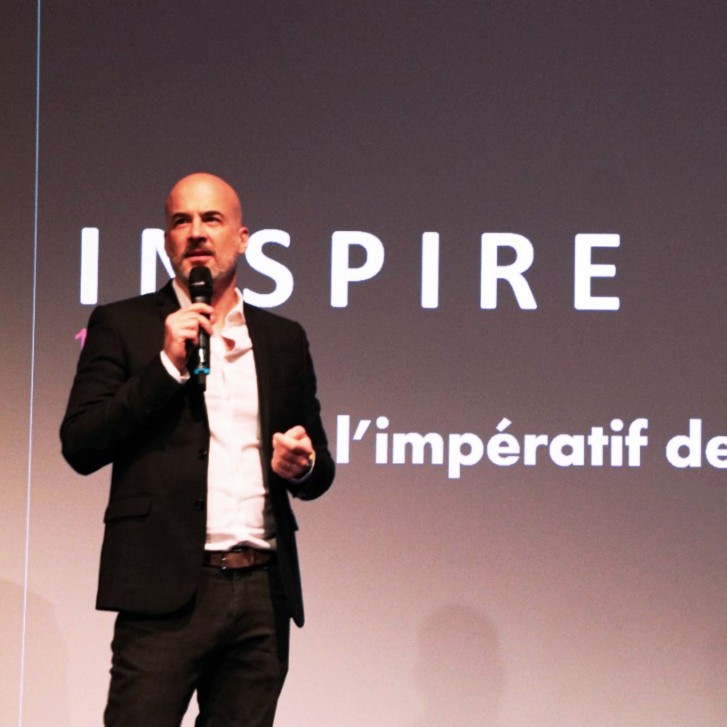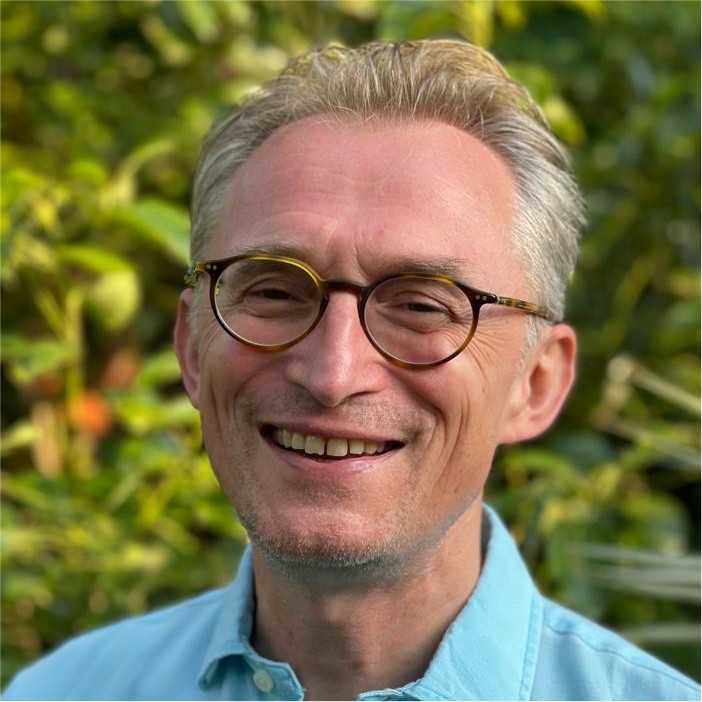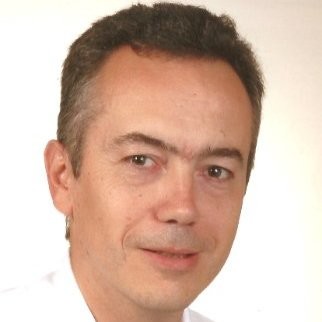
This unit focuses on mathematical and numerical modeling of complex systems in the era of digitalization. It also addresses the unavoidable economic and scientific issues linked to massive data, also known as “Big Data”, as well as questions relating to the development and analysis of digital tools capable of helping to extract information from data with the aim of adding value and providing support for decision-making, in collaboration with expert practitioners.
A few indicators :
- 2 HDR and 1 associated HDR
- 3 EC
- 6 PhD students, including 1 funded by ECC
- Over the last 3 years: 20 publications, 3 conference proceedings and 2 submitted journal articles
- 300,000 Mad PHC-TOUBKAL mobility project (2021-2023)
- 500,000 Mad Research project (2021-2022)
Team manager :
Mohammed El Rhabi, Prof. HDR in applied mathematics, HDR from Aix Marseille University, doctor from Sorbonne University (formerly Pierre et Marie Curie University).
Permanent team members :
- Adil AhidarD. in Applied Mathematics from the University of Aix-Marseille.
- Bouchra Bensiali, teacher-researcher in mathematics. former student of Ecole Centrale Marseille. Master’s degree in mathematics and applications, specializing in partial differential equations and scientific computing, from the University of Aix-Marseille. Doctorate in Mechanics and Fluid Physics from the University of Aix-Marseille.
- Aïssam Jebranea teacher and researcher in applied mathematics, is a graduate of the Ecole des Ponts ParisTech- Université Paris EST and CADI AYYAD University. His research activities focus on the mathematical modeling of crowd dynamics, in particular, the development of new models to better understand and predict the behavior of a moving crowd.
- Khalid Dahia lecturer and researcher in signal processing applied to the detection and diagnosis of faults in electrical machines and systems. An expert in Surveillance 4.0, he holds a PhD in electrical engineering from ENSIAS.
Jean Yves Dauxois
University Professor of Statistics, Risk Modeling, Reliability and Survival Analysis
Mohammed El Rhabi
expert in digital methods and data processing (signal & images).
Doctoral students :
-
Yassine Lamrhary, a doctoral student at EHTP, is focusing on the design of an artificial intelligence model for managing pedestrian flows in public places, with an emphasis on railway stations. It is supervised by Adnane Boukamel (ISMEC), Pierre Argoul (Gustave Eiffel University) and Aïssam Jebrane. His thesis is funded by the École Centrale Casablanca and the PHC Toubkal project.
-
Dramane Sam Kante works on multi-scale models in epidemiology, with a focus on COVID-19. It is supervised by Aïssam Jebrane and Abdelilah Hakim (UCA) and funded by the Hassan II Academy of Science and Technology.
-
Chaïmaâ Hermam, a doctoral student at ENSEM, is working on multi-scale modeling and simulation of the mechanical and thermal behavior of a porous structure. She collaborates with Salma Lahbabi and Bouchra Bensiali and receives funding from the Hassan II University incubation program.
-
Chihed Daaloul develops methods for calculating the Wasserstein barycenter for several probability measures. It is supervised by Adil Ahidar (ECC) and Jacques Liandrat (Centrale Marseille) and funded by Centrale Marseille.
-
Franck Kouassi focuses on statistical modeling of the reliability of concrete structures, with funding from the University of Toulouse. Jean-Yves Dauxois will also be supervising a thesis on reliability modeling for electrical equipment, in collaboration with RTE, under a CIFRE agreement.
- Ayyoub Ezzine is working on Optical Character Recognition (OCR) using deep neural networks, with an application to medical records. Its supervisors are Mohammed El Rhabi (ECC), Abdelghani Elmousaoui (UM6P), Franck Lebourgeois (MCF-HDR, INSA de Lyon) and Gabriel Malka (physician, PU and PES, UM6P). His thesis is funded by UM6P.
RESEARCH TOPICS
The unit’s research focuses on mathematics and its interactions, with an emphasis on mathematical and numerical modeling of complex systems. Two main avenues are explored: mathematical and numerical modeling, aimed at finding solutions for physical models and assessing their performance, and information processing with a specialized data engineering approach. These two complementary approaches enable us to tackle problems from different angles and develop effective solutions to meet the challenges they present.
RESEARCH TOPICS
- Hybrid modeling of complex systems: the aim of this research area is to explore interdisciplinary problems from different fields of interest, using hybrid approaches. Research is already underway in fields such as health (for example, the spread of epidemics such as covid-19) and urban safety (modeling pedestrian flows, mega-events, panic situations, etc.). In addition, other avenues of research will be explored to meet the specific needs of augmented and sustainable agriculture.
- Information processing, data sciences, data pre-processing: this research area focuses on information processing and data sciences, with a data engineering approach. We’re working on data pre-processing, with a focus on both massive and non-massive data. For massive data, we optimize and reduce the dimensionality of complex signals and images. We use coupled matrix and tensor decompositions to solve these problems. In addition, we are exploring the fusion of heterogeneous data using tensor decompositions. For non-massive data, we use variational methods coupled with machine learning techniques for data restoration. Our research has a wide range of applications, from MedTech to maritime surveillance and water resource management. AgTech projects are also envisaged.
RESEARCH PROJECTS
- Mathematical modeling to explore complex systems. This topic has attracted increasing attention over the past year, due to its successful applications in the study of coronavirus disease 2019 (COVID-19). Conventional modeling approaches generally focus on one level of description, whereas complex systems are regulated by processes that range from the molecular to the ecosystem level. Hybrid multi-scale modeling techniques combine discrete, continuous, deterministic and stochastic modeling methods in a single framework. As a result, they enable the integration of different points of view on the phenomenon under study, taking into account the heterogeneity of data and knowledge available at several scales. The development and implementation of integrative modeling approaches would improve our understanding of complex systems. Target applications are in (1) healthcare: modeling the spread of infectious diseases (Covid19 for example),(2) agriculture: modeling the growth of plants in interaction with their environments and (3) urban modeling: congestion, pedestrian crowds, particularly incidents such as panic. This project is in partnership with the Universities of Austin (Texas, epidemiology), Gustave Eiffel (crowd dynamics, France) and Institut Polytechnique UniLaSalle (agriculture).
- Multiscale modeling and simulation of the mechanical and thermal behavior of a porous structure: This is a project in partnership with a research project in mathematical modeling of materials at the microscopic level with defects in partnership with ENSEM.
- Wasserstein barycenter: The development of innovative methods to sample according to a law using optimal transport through a notion called “Wasserstein barycenter” of probability measures. This also enables stochastic gradient descent optimization in spaces with non-regular geometry. The final objective is to build a sampler that can integrate efficiently following a measurement, regardless of dimension. It is part of a more global theme at the interface between optimal transport and statistical learning. One application of this work is the construction of failure predictors using the Wasserstein barycenter of measurements, so we can see a link with the next theme of predictive maintenance. This project is in partnership with Centrale Marseille
- Maintenance modeling, and in particular predictive maintenance, is one of the unifying themes of UTER Mid@s. Examples include combining signal processing and Machine Learning techniques to detect anomalies, and probabilistic and statistical modeling of failure recurrence and maintenance efficiency to optimize preventive maintenance. The study of this cross-disciplinary field could generate collaborations within the ECC with colleagues in Industrial Engineering, Signal Processing and Mechanics, as well as with other GEC laboratories (in particular the LGI and MICS at CentraleSupelec, or with Centrale Marseille). In addition, a project is underway with SIANA (joint venture ONCF/SNCF), on the diagnosis and detection of multiple faults in electrical drives using advanced signal processing methods for predictive maintenance. This project is also in partnership with Aix Marseille University’s LIS (AMU/Se@Tech). 3 main areas are targeted: instrumentation in partnership with Siana, the study of methods for restoring acoustic and vibratory signals (AMUS/Se@Tech), and the identification of the potential of Machine Learning methods to complement these techniques. Last but not least, diagnostics in partnership with the UTER mechanical engineering unit.
- Multi-dimensional data analysis. Data blocks interpreted tensorially can be modeled using multi-linear decompositions (Parafac, Tucker, etc.). In order to estimate the factors involved in these decompositions, it is conventional to resort to criterion optimization algorithms consisting in measuring the modeling error. The deterministic and stochastic constrained optimization algorithms we are developing apply to multidimensional signal processing and high-dimensional image processing problems. Target applications mainly concern (1) fluorescence spectroscopy (3D images), (2) multi-dimensional deconvolution of signals or estimation of arrival directions using quadratic spatial time-frequency distributions in order to exploit a greater number of modalities: time-frequency-sensors, frequency, etc. Doppler-delay-sensors or even time-frequency-sensors-polarity (4th-order tensors), (3) hyperspectral imaging and NMF decompositions. The purpose of the algorithms we will develop is ( i) identification of latent variables and dimension reduction (ii) the separation (or demixing) of pure sources or compounds present in the mixtures studied, or even their classification. The final objective will be dimensionality reduction and/or data fusion in partnership with LIS (AMU/Se@Tech).
- Optical Character Recognition (OCR) using deep learning neural networks. Applications to medical records. On the one hand, the heart of our work concerns image enhancement or restoration techniques, aimed at correcting all imperfections in still or moving images (texts captured by cameras). On the other hand, a tool for recognizing handwritten characters in document images, or handwritten text captured by cameras (possibly pre-processed). This project is in partnership with UM6P and Insa Lyon. reducing energy and input consumption.
CURRENT PROJECTS
- AgTech project (precision agriculture): The project involves the development of dynamic plant growth models that take into account climatic conditions and resource availability as inputs. These models can predict plant growth according to weather conditions and available resources, providing precise information on crops and their development. The aim of this project is to improve precision agriculture by providing farmers with more accurate information about the growth of their crops, enabling them to make more informed crop management decisions, such as harvest planning and resource use. Thanks to this project, farmers can optimize their use of resources and maximize their yields, which can help improve food security and environmental sustainability. This project is led by Aïssam Jebrane
- LISIAM project “Intelligent LIDAR-based surveillance systems for safety and monitoring of critical infrastructures”. This project proposes an innovative monitoring solution based on the combination of LIDAR technology and artificial intelligence. It can detect, recognize and track objects in complex environments with great precision and reliability, up to 500 meters away. The system uses noise correction, distortion correction, super resolution and machine learning algorithms to improve the quality of the data collected, while preserving privacy and individual rights. This project also enables the creation of a structured Moroccan dataset for future research. This project is led by Hervé Martinez (UTER Physics).
- RemedIA project: French start-up REMED-IA Technologies offers an innovative solution to help monitor asepsis in operating areas. Their solution is non-intrusive, real-time, and can detect contamination risks at an early stage, providing continuous, reliable monitoring. As part of this project, we are developing a system for detecting and preventing asepsis errors. Based on Computer Vision, 3D and Artificial Intelligence technologies, this system is currently in the demonstration phase, where it is being tested and improved. The aim is to offer an effective, innovative solution to guarantee patient safety during surgery. This project is led by Mohammed El Rhabi.
PROJECTS FINANCED
- Toubkal project (bilateral cooperation between Morocco and France) PhD student mobility: €30,000/project over 3 years, from January 2021 to December 2023. The project concerns the design and development of a crowd movement model for managing pedestrian flows in public places and in panic situations. The project is coordinated by prof. Aissam Jebrane and Prof. Adnane Boukamel. It is produced in partnership with Prof. Pierre Argoul of Université Gustave Eiffel (UGE).
- COVID propagation modeling project under the scientific responsibility of prof. Aissam Jebrane, financed by the Hassan II Academy of Sciences and Techniques, in partnership with the Euromed University of Fez, and the Cadi Ayyad University of Marrakech for a budget of 500,000 MAD over 3 years from January 2021. The aim of the project is to use rigorous mathematical modeling to develop a set of decision-making tools that will give health sector managers a clear view of how the pandemic situation will evolve. These tools will be used to draw up various operational plans outlining the steps to be taken during and after the crisis period, with the aim of restoring normal life and rapidly anticipating and containing the spread of the virus. To develop the multiscale modeling of Covid 19 propagation, an intern has been recruited at ECC, for this purpose and this since February 2021.
- LISIAM project “Intelligent LIDAR-based surveillance systems for safety and monitoring of critical infrastructures”. This project proposes an innovative monitoring solution based on the combination of LIDAR technology and artificial intelligence. It can detect, recognize and track objects in complex environments with great precision and reliability, up to 500 meters away. The system uses noise correction, distortion correction, super resolution and machine learning algorithms to improve the quality of the data collected, while preserving privacy and individual rights. This project also enables the creation of a structured Moroccan dataset for future research. This project is led by Hervé Martinez (UTER Physics).
Publications 2019-2023 :
Download publications 2019-2023 by clicking here.
PARTNERS – UTER MIDAS








Research topics within the Physics unit include key questions on the behavior of electrode materials and electrolytes during cycling in M(Li, Na, K) ion batteries. More specifically, the experimental and theoretical study of the main oxidation-reduction phenomena during discharge/charge cycles within a battery, and of phenomena at interfaces, are the key elements of these devices. On the other hand, we address adsorption and diffusion phenomena at the electrode/electrolyte interface in carbon- and phosphorene-based supercapacitors using multiscale theoretical approaches based on classical and quantum methods, as well as mesoscopic models. Target applications include electric vehicles and energy storage for conversion devices (photovoltaic and wind power). We also propose to address the design of a new class of ternary alloy materials and their characterizations, which constitute an original research avenue for numerous applications in the energy and environmental fields.
UTER in a few indicators :
– 4 Teacher-researchers including 1 HdR
– 6 PhD students
– 2019 – 2023: 57 Publications* including 54 Q1, 3 Q2.
Team manager :
- Hervé Martinez, University Professor at Ecole Centrale Casablanca.
Permanent team members :
- Belhboub Anouar, Physics teacher-researcher. D. in physics from the Charles Coulomb Laboratory at the University of Montpellier. He then joined the CEISAM laboratory at the University of Nantes as a research assistant. For his second experience as a research assistant, he worked at the Centre Interdisciplinaire de Recherche et d’Ingénierie des Matériaux at Toulouse’s Paul Sabatier University, where he also took on teaching assignments as a part-time lecturer. he is the author of several publications on the use of theoretical methods for modeling atomic and molecular systems.
- Bouhani Hamza holds a double doctorate in materials physics, specializing in magnetocaloric materials, from the Université de Lorraine and the Université Mohammed V in Rabat. His research focuses on understanding the interaction between magnetism and lattice, which gives rise to emerging phenomena such as the magnetocaloric effect, with the ultimate aim of designing new functional magnetic materials for technological applications. He has published several peer-reviewed papers on magnetic materials in leading journals.
- Ait Labyab Nadia holds a PhD from UIT (Ibn Tofail University, Kenitra- Morocco) in materials physics and energy. Dr. Ait Labyad’s areas of expertise include the study of spintronic devices for energy storage and transfer in thin films based on transition metal alloys (modeling the properties of nanomaterials using numerical approaches). It also addresses the theoretical design of new inorganic structures based on NbO clusters (by DFT simulation) using turbomole 6.4 and gaussian 09 software for biomedical cancer treatment. Recently, she has undertaken the theoretical design of new phosphorus structures, materials for energy storage using DFT and molecular dynamics.
- Martinez Hervé is a graduate in Materials Physics Engineering from the Institut National des Sciences Appliquées (INSA) in Toulouse (1992), followed by a Master’s degree in Solid State Physics from the Université Paul Sabatier (1993). D. from the Université de Pau et des Pays de l’Adour (UPPA) in 1996 in Chemistry-Physics, he was appointed Senior Lecturer in 1998 after a post-doctoral period in the USA (Carnegie Mellon University – Pittsburgh and Lawrence Berkeley Laboratory – Berkeley), and obtained his Habilitation to direct research in 2004. He was appointed University Professor in 2008 and promoted to the exceptional class in 2016. Over the course of his career, he has held various research and teaching administration positions (CNRS Unit Director, UPPA Scientific Perimeter Research Director, Department Director). Today, he is Director of Research at Centrale Casablanca, and also Director of a CNRS “Photoemission Spectroscopy” Research Federation comprising 45 laboratories in France. He holds a Research Chair with Carnegie Mellon University (Pittsburgh – USA). Its research focuses on the chemistry of surfaces and interfaces of materials, applied to various fields: materials for energy storage (Li-Na-K ion batteries) Corrosion phenomena and protection of metal alloys. Nanomaterials with health-related applications. He is the author of over 170 A-rated publications (H-index: 39), two book chapters and has been invited to numerous international conferences (76). He has coordinated over 20 national and international projects (academic and partnership) and supervised 25 PhD students.
Associate member :
- Hervé Arribart is a graduate of Ecole Polytechnique. A physicist and chemist, he is a Professor at ESPCI ParisTech, a former Scientific Director of Saint-Gobain, a member of the Académie des technologies and a Fellow of PRESANS.
Doctoral students :
- Badre LaharibDoctoral student at the Université de Pau et Pays de l’Adour, working on a thesis under the supervision of H. Martinez (ECC), with experience in the fields of energy storage and electrochemistry, more specifically on new Potassium-ion batteries and their aging mechanisms during electrochemical cycles (student recruited as part of the ANR TROPIC program).
- Camille FerrisD. student at the Université de Pau et Pays de l’Adour, working on the analysis of multi-composition metallic membranes for energy and environmental applications (student recruited as part of the UPPA-Carnegie Mellon University international chair).
- Mathieu CaspardD. student at the Université de Pau et Pays de l’Adour, working on a thesis under the supervision of H. Martinez (ECC), studying the analysis of complex sulfides used as high-capacity positive electrode materials for all-solid-state lithium batteries (student recruited under a UPPA – CEA Tech Liten contract).
- Karama Ghamgui, PhD student at the Université de Pau et Pays de l’Adour, supervised by H. Martinez (ECC). Her subject is the physico-chemical characterization of electrode/electrolyte interfaces in high-voltage Li-ion batteries with a TNO anode (student recruited under a CIFRE contract with TOTAL-SAFT).
- Brice Talompa, PhD student registered at Université Mohammed VI (UM6P), under the supervision of Abdelouahed El Fatimy (UM6P), co-supervised by Anouar Belhboub (ECC). The subject of this thesis is the experimental and theoretical approach to the CVD deposition of phosphorus on nickel substrates to form phosphorene sheets.
- Gaelle Bouder, PhD student at the Université de Pau et Pays de l’Adour, thesis supervised by P. Carbonniere (UPPA) and co-supervised by Hamza Bouhani (ECC). Her thesis concerns the theoretical study of electrode-electrolyte interfaces for all-solid-state batteries (student recruited as part of the RAISE2024 project – E2S UPPA).
RESEARCH TOPICS :
Research topics within the Physics unit include key questions on the behavior of electrode materials and electrolytes during cycling in M(Li, Na, K) ion batteries. More specifically, the experimental and theoretical study of the main
Oxidation-reduction phenomena during discharge/charge cycles within a battery and phenomena at interfaces are key elements of these devices. On the other hand, we address adsorption and diffusion phenomena at the electrode/electrolyte interface in carbon- and phosphorene-based supercapacitors using multiscale theoretical approaches based on classical and quantum methods, as well as mesoscopic models. Target applications include electric vehicles and energy storage for conversion devices (photovoltaic and wind power). We also propose to address the design of a new class of ternary metal alloy materials and their characterizations, which constitute an original research avenue for numerous applications in the energy and environmental fields.
RESEARCH TOPICS
- Analysis of redox processes in M-ion batteries and phenomena at interfaces : Experimental and theoretical approaches. This area covers the study of material behavior electrodes and electrolytes both experimentally and theoretically. Analysis of redox processes and the nature of the electrode/electrolyte interfaces are two essential parameters for understanding the process. M-ion batteries and optimizing their performance in the broadest sense. What’s more, a parallel theoretical study approached through the prism of atomic-scale molecular simulation and, more precisely, through the molecular dynamics approach, to model ionic diffusion in electrode materials, but also within the electrode/electrolyte interface with respect to possible functionalizations and formulations. The chemical and structural changes taking place at the interfaces are also the objectives of this axis.
- Study of ternary alloys and their properties. The vast majority of technologically relevant materials are based on complex formulations, sometimes in the form of alloys such as AxBy C(1-x-y), x=01,y=01-x) with multiple coexisting phases. These materials, which are also used energy or the environment (batteries for energy storage, turbines for power generation, catalysts for emissions reduction, sorbents for the CO2 capture…) are often complex to synthesize. Traditional methods that study materials of one composition, phase or morphology require a huge experimental effort to collect data to collect data covering continuous regions of compositional space (AxBy C(1- x-y), x=01,y=01-x), phases or morphology. To solve this problem, we propose a a new approach based on the development of experimental production methods that, for a single the same sample of just a few cm 2 , to design an object covering a wide range of compositions and phases. Nevertheless, to guide these syntheses, and then the study of the resulting properties, a work of characterization involving both the material volume, its surface and the interfaces between the composition is essential. All of these aspects, including potential applications, will be addressed in this line of research.
- Multiscale modeling of hybrid physical systems: Understanding the interaction mechanisms at the heart of hybrid physical systems is an essential step towards the modulation of their physical properties. In this context, theories and approaches to modelling physics are the tools of choice for probing electronic, magnetic and vibrational properties. of these nanometric systems. Indeed, taking into account the space and time scales of the and the physical mechanisms involved, a comprehensive characterization of this type of systems will call on several types of modelling: (i) ab initio quantum modelling to describe interactions at the atomic scale, enabling the study of crystalline and noncrystalline systems. (ii) classical molecular dynamics modelling for simulating systems with large number of particles (iii) mesoscopic modelling to link the quantities to macroscopic quantities. This approach enables us to understand for applications in electronics, energy and mechanics.
RESEARCH PROJECTS
- K-ion batteries (KIBs): (Ecole Centrale Casablanca, IPREM, ICMCB, ICG*). This subject is part of the development of new generations of potassium-ion batteries, which represent a relevant alternative for the coming years to lithium supply, a critical element due to the intensive and growing use of Li-ion technology. The development of KIBs is envisaged in two stages: The first part focuses on the study of positive and negative electrode materials in half-cell configuration, in order to define promising materials: in this configuration, the electrode studied faces potassium metal. The second part is based on work on a complete cell, to find out how the cell behaves in a configuration close to that of commercial batteries. The main objectives of this thesis are to understand the functioning of certain electrode materials, and to study the phenomena occurring at electrode- electrode interfaces.
electrolytes to determine their impact on cell performance. - Molecular dynamics: This theoretical topic (Ecole Centrale de Casablanca, IPREM) involves using the tools of molecular dynamics (using a quantum approach) to qualitatively observe the formation of species at the interfaces of Li-ion batteries, which control the performance in the broadest sense of the term. The effect of interfacial layers to limit electrolyte degradation is a key element of the study. study.
- Modeling and diffusion of lithium in solid polymer electrolytes / Behavior of solid/solid interfaces (Ecole Centrale Casablanca, IPREM, DMEX): This experimental and theoretical topic concerns “all-solid” batteries. This new generation of batteries for electric vehicles should lead to a significant increase in energy density, in complete safety and at a lower cost than liquid electrolyte systems. One of the key issues with this new technology is the solid/solid interfaces, which concern all the key elements of the devices (negative electrode/solid electrolyte, positive electrode/catholite, positive electrode/solid electrolyte). These interfaces are buried in the battery core, making them complex to study, and the devices needed to access them require a specific experimental environment available within the consortium. On the theoretical front, the use of molecular dynamics tools (classical approach) to study ionic diffusion within electrolyte materials as a function of their functional modification and the presence of additives should enable us to develop new high-performance systems. We will also simulate ionic diffusion at the electrode/electrolyte interface in the presence of natural or artificial interfacial layers.
- Ternary metal alloys : The main objective of the project is to implement a collaborative research program between the Ecole Centrale de Casablanca, IPREM (CNRS- UPPA) and the College of Chemical Engineering at Carnegie Mellon University (USA, Pittsburgh) to develop ternary metal alloys of the AxByC(1-x-y) type, x=0→1 and y=0→1-x with multiple coexisting phases. The core of the approach begins with the preparation of material “libraries”. In our case, “Spread Alloy Films: Csafs” are produced (physical phase deposition prototype under ultra-high vacuum) with the aim of obtaining local compositions covering the entire binary or ternary alloy composition space, AxBy C(1-x-y), x=01,y=01-x. The second step is surface characterization of the CSAF library. The key point is characterization with sufficient spatial resolution to enable point-by-point analysis. This two- or three-dimensional analysis can be carried out using methods such as X-ray photoemission spectroscopy, Auger nanoprobe or ToF-Sims. Finally, the third stage of this project involves spatially resolved measurements of targeted properties such as catalytic activity or corrosion resistance. These can then be correlated with the characteristics of the materials concerned (surface composition, electronic structure, etc.). By way of example, for an AlFeNi type material, it is possible to identify the trajectory through composition space of the critical aluminum concentration below which the alloy undergoes volume oxidation and above which it is passivated against surface corrosion. Of particular interest will be membranes in the form of Palladium (Pd) alloys that are capable of purifying dihydrogen from various sources of gas streams. A high level of H2 purity is required for fuel cell applications. Pd is usually alloyed with a second component (Cu, Ag, Au, etc.) to ensure mechanical stability and prevent the formation of hybrid phases. The role of the third component in the ternary alloy is generally to ensure the material’s high-temperature stability. This study could be extended to the corrosion resistance of sulfur-containing gases, which passivate the membrane surface and prevent the dissociative adsorption of H2 that precedes the transport of hydrogen atoms through most of the membrane. Understanding the dependence between composition and corrosion resistance in Pd alloys is essential for optimizing properties.
- Modeling degradation mechanisms in GaN-based devices: (Ecole Centrale Casablanca, UM6P). The aim of this project is to study the fundamental physics of electron transport in GaN nanodevices in order to investigate their degradation mechanisms. The research methodology consists of three parts: the first is theoretical and concerns a macroscopic model to describe electron transport in nanodevices. The second part concerns microscopic modeling to describe quantum transport in nanodevices and extract macroscopic quantities. The third part focuses on the design of an experimental protocol to study the degradation mechanisms of our nanodevices and to compare them with the two theoretical models.
- Molecular dynamics modeling of phosphorene growth: (Ecole Centrale Casablanca, UM6P). This work focuses on the study of phosphorene growth on metal substrates using a molecular dynamics approach. The stability of the structures is discussed, taking into account the orientation of the phosphorene sheets relative to the copper substrates over given temperature and pressure intervals, in order to understand the correlation between these different factors. The extraction of phosphorene sheets is also explored from an energy point of view.
- Modeling the structural and capacitive properties of carbon-based supercapacitors: (Ecole Centrale Casablanca, CIRIMAT Toulouse). This work focuses on the development of a mesoscopic model to predict the electrochemical performance of carbon-carbon supercapacitors at a much lower computational cost (almost 10,000 times faster) than microscopic molecular dynamics simulations. We adapt a lattice-based model that has shown promising results for simulating ion diffusion and predicting NMR spectra for species adsorbed on neutral porous carbons. The mission is to implement new functionalities to introduce the possibility of applying a potential to the modeled electrodes, and to modify the way diffusion is processed in an attempt to get closer to reality. This will enable more accurate systematic studies of structures containing a range of porous carbons with different pore size distributions (unimodal and bimodal). The functionalities implemented will also help to study the effect of solvation and pore size on capacitive properties.
- New giant magnetocaloric effect materials at very low temperatures: We will be working on the design and optimization of new giant magnetocaloric effect materials at very low temperatures for cryogenic applications.
- Modeling and simulation of thermodynamic and kinetic properties of hydrogen storage in 2D materials: Simulation and modeling of 2D materials (Arsenene). The aim of this project is to study the capacity of certain 2D materials for hydrogen storage using molecular dynamics and density functional theory.
FINANCIAL PROJECTS
- 2019-2025 HUB RAISE 2024 E2S: Development of all-solid-state batteries (industrial partners: Total-SAFT & Arkema).
- 2020- 2024 ANR TROPIC project ‘TowaRds inOvative PotassIum-ion full-Cell’. Development of new alternative electrochemical storage systems to lithium. (Theme: Sustainable, clean, safe and efficient energy)
- 2020 – 2025 E2S International Chair UPPA, USA (CMU – Pittsburgh) – UPPA (France) – Morocco (ECC): Study of ternary intermetallics and corrosion phenomena
- 2021- 2024 ANR Hyperslim project: ‘High Performance Stretchable Li-ion Microbattery’: Development of scalable lithium microbatteries under mechanical stress. (Theme: Sustainable, clean, safe and efficient energy).
- 2022 – 2025 Commissariat aux Energies Alternatives CEA Tech Bordeaux :
- 2022 – 2025 CIFRE TOTAL-SAFT – IPREM – ECC: physico-chemical characterization of electrode/electrolyte interfaces in high-voltage Li-ion batteries with TNO anode
Publications 2019-2023 :
Download publications 2019-2023 by clicking here.
PARTNERS
















UTER GI’s research focuses on the requirements of new product-services systems, the industry of the future (Industry 4.0), the supply chain, intelligent cities and mobility, healthcare systems and innovation in engineering education. The aim of the unit’s research is to address, with an integrated, multidisciplinary approach, issues related to value analysis, enterprise architecture, the design and development of products, services, systems (PSS) and/or value chains, and their deployment in terms of organizational and/or digital transformation projects, steering architectures, decision-making methods, operations management techniques and optimization algorithms.
UTER’s research objectives are in line with the scientific issues on which the École has chosen to position itself. Research work is in line with new developments related to industry/factory of the future (industry 4.0), smart city and smart mobility (smart city 5.0), and innovation in engineering education. They also address issues linked to the decarbonization of supply chains through better optimization of value-creation processes, the implementation of better-adapted Lean and Green organizations, and the development of new resource-sharing models.
UTER in a few indicators :
- 2 teacher-researchers, including 1 HdR
- 1 Temporary teaching assistant
- 1 Doctoral student funded by ECC
Team manager :
- Fouad Riane, Professor of Industrial Engineering.
Permanent team members :
- DARMOUL Saber, Professor, Doctor in Computer Science and Productics, Université Blaise Pascal, Clermont Ferrand and Université de Carthage, Tunis. Head of Axis 1
- RIANE Fouad, Professor of Higher Education, Doctor in Industrial Engineering from the Catholic University of Louvain, Belgium, holder of a Habilitation to direct research from Blaise Pascal University in France and a University Habilitation from Hassan Premier University. Manager Axis 2
Doctoral students :
- BENHLIMA Ouidad, holder of a State Engineering Diploma from the Mohammadia School of Engineering. 1st year of thesis.
RESEARCH TOPICS :
UTER GI’s research focuses on the requirements of new product-service systems, the industry of the future (industre4.0), the supply chain, intelligent cities and mobility, healthcare systems and innovation in engineering education. The aim of the team’s research is to use an integrated, multi-disciplinary approach to address issues relating to value analysis, enterprise architecture, the design and development of products, services, systems (PSS) and/or value chains, and their deployment in terms of organizational and/or digital transformation projects, steering architectures, decision-making methods, operations management techniques and optimization algorithms.
UTER’s research objectives are in line with the scientific issues on which the School has chosen to position itself. Research work is in line with new developments related to industry/factory of the future (industry 4.0), smart city and smart mobility (smart city 5.0), and innovation in engineering education. They also address issues linked to the decarbonization of supply chains through better optimization of value-creation processes, the implementation of better adapted Lean and Green organizations, and the development of new resource-sharing models.
RESEARCH TOPICS
- Engineering and control of resilient cyber-physical systems : This area focuses on engineering the resilience of cyber-physical systems for products and services. Research efforts focus on the development of concepts, mechanisms, methodologies, decision support tools and architectures for integrating resilience, agility and flexibility into the design and operations management of (1) cyber-physical product and service systems (CPS) and (2) digital transformation projects leading to the deployment of these CPS. We are particularly interested in the design of generic conceptual frameworks, the development of distributed control architectures and knowledge-based decision support systems to improve the ability of SPCs to cope with change in a reactive way.
- Decision Support for Goods and Services Production and Distribution Systems. Work in this area focuses on decision support to optimize the performance of organizational systems: manufacturing systems, logistics systems, healthcare systems and urban systems. The scientific positioning of this axis is centered on the Modeling, Optimization and Simulation of these systems, whether in the design, reconfiguration or operating phases. Researchers are interested in all decision-making activities linked to the design, planning and management of value-creation networks (supply chains) in complex, increasingly constrained environments, where organizations are increasingly vulnerable and subject to randomness, and where new technologies are transforming cities, markets, and companies involved in the production and distribution of products and services. Their research focuses on the operational optimization of organizational systems (manufacturing, logistics, healthcare and/or urban) through the development of methodologies and the integration of robust tools for increasingly data-driven decision support. In this way, they contribute to improving the performance of supply chains and regions through approaches that integrate resilience and agility, while meeting the challenges of sustainable development.
RESEARCH PROJECTS
- LGI Joint Research Program CS_ECC
-
- ECC Coordinator: Prof.. Fouad Riane
- Summary: This project is the culmination of a collaboration with CentraleSupélec’s Industrial Engineering Laboratory. It enables the teams involved to develop a framework for carrying out a jointly elaborated research program, centered around the modeling, simulation and optimization of complex systems in industry (production systems, value chains, logistics chains) and services (urban services, healthcare services, transactional services); The objectives of the program are to co-supervise research projects and doctoral theses, to encourage high-level joint scientific production, and to promote the mobility of teachers and researchers, as well as the sharing of expertise and best practices in research and teaching.
- Vehicle route optimization with integrated shared inventory management : This doctoral research project focuses on the development of decision models for shared inventory management in supply chains.. In particular, we focus on sharing stocks of finished products and reusable transport media (such as pallets, crates and containers) that circulate in a closed loop. Our research is based on practical case studies describing the reality of stock sharing. We are particularly interested in fashion textile distribution, spare parts distribution and RTI management in the automotive and food industries; For each type of shared resource, we develop specific mathematical models and original resolution methods based on the hybridization of mathematical modeling, coevolutionary algorithms and deep reinforcement learning. Experiments are carried out to evaluate the relevance of the proposed models, the performance of the resolution approaches, and to analyze the results obtained in order to produce relevant recommendations.
- Design of a modeling tool and environment for improving urban mobility in African metropolises : The research project focuses on the analysis, modeling and optimization of people’s mobility in emerging metropolises, taking into account spatio-temporal constraints, urban demand and transport supply. This theme has been widely discussed in the literature; However, an integrated approach that takes into account the specific features of emerging cities is needed to tackle this issue. Given the intrinsic complexity of an African city like Casablanca, its topology and functionalities, accessibility to different types of services poses a problem for investigation and analysis. This analysis needs to take into account the specific features of demand for mobility, as well as the characteristics of the mobility offer enabling access to opportunities by car, by public mass transit and via small-scale transport. Modeling this hybrid mobility offer will enable us to better understand its contribution to improving accessibility, and its impact on the quality of mobility and the sustainability of the city.
- Planning and operations management support for sustainable supply chains : This project focuses on reducing food loss and waste. The importance of food waste has been highlighted in the literature because of its impact on society, the economy and the environment. The complexity of food waste reduction justifies the value of agri-food supply chain modeling and the importance of conducting research that takes sustainability dimensions into account, as has indeed been highlighted in several studies in the literature (Eskandarpour et al. 2015, Govindan and Cheng, 2015, Duret et al., 2019, etc.). One of the biggest challenges in managing fruit and vegetable supply chains is to identify solutions that balance cost, quality and environmental concerns. The aim of this research is to develop a conceptual framework, based on simulation, to inform decision-making in packaging design and the operation of fruit and vegetable supply chains, in order to find a compromise between costs, emissions and quality. In a classic supply chain management approach, the focus is more on reducing transport costs in the delivery process. One of the most important factors in fresh produce chains is food freshness, which needs to be integrated into logistical concerns and decision-making. In this research, we propose a conceptual framework for examining and understanding food waste issues in supply chains. We’ll be looking in particular at the impact of packaging on food preservation, and examining different types and modes of distribution where waste occurs most. We will develop indicators to measure the impact of a new generation of packaging on reducing waste. In addition to methodologies, we will introduce tools for optimizing, simulating and assessing the impact of new packaging on overall supply chain performance.
- Projet ENHANCE “Strengthening skills and training expertise for TunisiAN and MorroCan transition to industry 4.0 Era”, European Commission Erasmus+ Program, We will develop indicators to measure the impact of a new generation of packaging on reducing waste. In addition to methodologies, we will introduce tools for optimizing, simulating and assessing the impact of new packaging on overall supply chain performance.
- Euro 779,667.00 January 2021
- January 2024.
- ECC Coordinator: Prof. Saber Darmoul
- Summary: ENHANCE aims to develop and modernize industry in the Maghreb by helping to strengthen the skills and training expertise of Tunisian and Moroccan universities in three targeted themes to encourage and support the transition to the Industry 4.0 era. The project is based on the realization that there is a real need for alternative tools to develop new industrial processes that will help the transition to Industry 4.0. The project offers an excellent opportunity to build an interesting and constructive collaboration between the EU and Tunisian and Moroccan universities to share knowledge and expertise.
- Website : https://eplus-enhance.eu/
- Design and development of a distributed, knowledge-based control architecture to achieve operational resilience in cyber-physical production systems : Production systems today face many different challenges, linked to rapid technological change, unpredictable markets (demand volatility, mass customization), changes, disruptions and operational risks (unavailability and/or unreliability of resources). A great deal of research has been carried out on so-called “cyber-physical production systems (CPMS)”, which implement new concepts linked to technologies that will enable us to build the factories of the future, factories that are able to adapt quickly to unexpected changes, while maintaining or even improving their competitiveness. In this doctoral research project, we focus on operational disruptions in CPMS, as a particular type of change related to operations management. In particular, we focus on the operational resilience of a CPMS, notably with regard to the continuity of production flows, maintaining an acceptable, tolerable or satisfactory level of performance and quality of service in the face of various types of disruption. The aim of the project is to design and develop a distributed, knowledge-based control architecture that exploits product intelligence to achieve resilience and thus effectively manage disruptions and operational risks in cyber-physical production systems.
- Skills engineering for engineering education and training : We are interested in developing methodologies and tools that make the most of digital technological advances to guarantee the acquisition of knowledge, know-how and interpersonal skills based on learning by doing and by example. The particular challenge of this acquisition of knowledge and skills is to take into account the health constraints of social distancing. The aim is to train engineers to deploy the digital technologies of Industry 4.0 for the benefit of their organizations.
- MILEX Project: Intelligent Mobility & Sustainable Urban Logistics for a Better User Experience in the City.
-
- Research project funded by the APR&D program (Appel à Projets de R&D multithématique) launched jointly by the Ministry of Higher Education and Scientific Research and Innovation, Le Centre National pour la Recherche Scientifique et Technique (CNRST), Université́́ Mohammed VI Polytechnique (UM6P) and the OCP Foundation (FOCP).
- ECC Coordinator: Prof.. Fouad Riane
- Summary: The project focuses on studying the characteristics of urban mobility and last-mile logistics in emerging cities, with Casablanca as a case study. These towns are characterized by a still very heterogeneous mobility offer and by very capillary goods distribution networks due to the large number of local shops, despite the development of modern distribution. The highly capillary nature of distribution networks requires logisticians to travel more frequently in urban areas, often making fragmented deliveries. This trend is accentuated by the explosion in e-commerce, with consumers increasingly buying online for home delivery, which has brought the problem of return-to-town logistics to the fore. Through this project, we aim to understand the dynamics of the various flows, characterize last-mile logistics and measure its impact on urban mobility. The aim is to exploit potential synergies to design intermodal, clean and intelligent solutions that will enhance the attractiveness of cities and reduce environmental damage.
Publications 2019-2023 :
Download publications 2019-2023 by clicking here.
PARTNERS
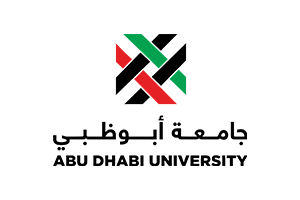
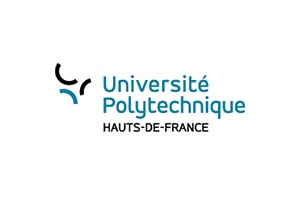




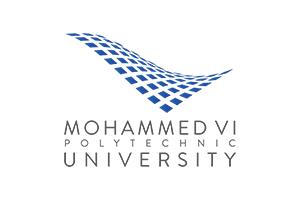
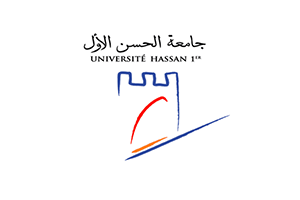
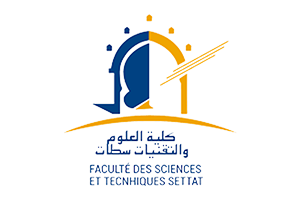

Research themes address key issues linked to industrial challenges and the energy transition, in particular those related to materials, structures and natural resources. They focus on the modeling of complex mechanical systems, integrating both multi-physics and multi-scale aspects, as well as their characterization and numerical simulation. As an example of complex systems, we are particularly interested in modeling multi-structural interactions in intelligent and biological materials.
UTER in a few indicators :
- 3 Research Professors, including 2 Habilitated to Supervise Research
- 3 PhD students, financed by the ECC, including one in common with UTER MIDAS and in cotutelle with Université Gustave Eiffel
- Over the last 3 years: 18 Publications Q1.
- Mobility project, as part of PHC-Toubkal (in collaboration with UTER MIDAS) 100,000 MAD
- Research projects, Hassan II Academy of Science and Technology (in collaboration with UTER MIDAS) 500,000 MAD
- China-Morocco Joint Laboratory on Mechanics of Thin-walled Composite Structures. September 2022 – August 2025, Project number: 2022YFE0113100, in collaboration with Unité Mixte de Recherche ISMEC-ECC and LIMAT – UH2C.
Head of UTER :
- Damil Noureddine, Professor of Higher Education (HDR)
Permanent members of UTER :
- Boukamel Adnane, University Professor (HDR)
- Damil Noureddine, Professor of Higher Education (HDR)
- El Alami Eliass, Teacher Researcher
Doctoral students :
- Kaba Sita
- Lamrhary Yassine (in conjunction with UTER Midas)
- Ouardi Ayoub
RESEARCH TOPICS :
Research themes address key issues linked to industrial challenges and the energy transition, in particular those related to materials, structures and natural resources. They focus on the modeling of complex mechanical systems, integrating both multi-physics and multi-scale aspects, as well as their characterization and numerical simulation. As an example of complex systems, we are particularly interested in modeling multi-structural interactions in intelligent and biological materials.
RESEARCH AREAS :
Three areas of Research:
- Numerical Methods, Instabilities and Bifurcations.
- Multi-scale and multi-physics modeling and simulation.
- Durability of Materials: Damage, Fatigue and Ageing.
- Numerical Methods, Instabilities and Bifurcations : This area aims to develop advanced numerical methods in the field of mechanics, with applications to structural and fluid instabilities and wave propagation in different media. In particular, we are developing Numerical Asymptotic Methods (NAM) for the numerical solution of problems arising from nonlinear mechanics. In unsteady conditions, the proposed algorithms are based on homotopy techniques and classical time and space discretization procedures. DEMs have proven their effectiveness and are less costly than other non-linear problem-solving methods. We are also developing simulation techniques based on mesh-free methods for the numerical resolution of certain problems in energy mechanics. Meshless methods are simulation techniques based on collocation interpolations of radial basis functions (RBF). Unlike conventional numerical methods, which rely on the use of a mesh to discretize the geometry of the domain under consideration, meshless methods enable interpolation by collocation of radial basis functions capable of adapting to any distribution of points in the domain under consideration, thus freeing us from the difficulties associated with mesh generation and management. These techniques enable efficient numerical simulations that are less CPU-intensive than conventional algorithms. We also numerically study bifurcation points and bifurcated branches in fluid mechanics. The aim is to treat bifurcation phenomena for fluid flow through an expansion in several geometries, where the flow becomes unstable after a certain critical Reynolds value, and for complex fluid flows in porous media. These phenomena are often encountered in aeronautics, automotive, aerodynamics, energy and fluid-structure interactions.
- Multi-scale and Multi-physics Modeling and Simulation : We study elastomer materials characterized by their high deformability, damping capacity, fatigue resistance, etc. These materials are used more and more frequently in various industrial sectors, such as the aeronautics, automotive, construction, biomedical and leisure industries. This use, often for safety-critical functions and/or under severe mechanical, thermal or chemical conditions, requires a thorough understanding of elastomer behavior mechanisms. Controlling behavioral performance, which is the result of a strong interaction between the chemical composition of this type of material, its manufacturing processes, its microstructure and its physicochemical properties, requires, among other things, a good understanding of the behavior of their structure at different scales, and therefore calls for a multi-scale and multi-physics modeling approach. We develop model reduction methods for complex structures with non-linear behavior. Reduced models based on a multi-scale method using Fourier series with slowly varying coefficients are also developed, with applications to the interaction of local and global instabilities, in particular the interaction of folding and buckling in very thin shells.
- Durability of Materials: Damage, Fatigue and Ageing Contact and interface management; Phase-Field.
-
RESEARCH PROJECTS
- Micro-macro modeling of the hyperelastic behavior of an elastomer The aim is to propose a micro-physically motivated model of the hyperelastic behavior of elastomers, using a micromechanical approach based on microstructure modeling, with segments of molecular chains: elastic bar-type elements to represent segments between crosslinking points; coils to translate the flexibility of rotations around crosslinking points; and energy-threshold bonding elements, to translate decohesion at entanglement points.
- Modeling DNA behavior : This involves using the micromechanical approach, based on modeling DNA as a macromolecular chain made up of rods and turns.
- Modeling biological growth using the Numerical Asymptotic Method (NAM): This involves using NAM techniques (integer series representation, discretization and continuation) to solve nonlinear equations in the mechanics of biological growth.
- Numerical modeling of capsules and vesicles. The aim is to propose a numerical approach for simulating the changes in shape observed when a membrane is deflated. Applications include capsules and vesicles.
- Multi-scale modeling of heterogeneous materials using a high-order algorithm. The aim is to propose new techniques based on the numerical asymptotic method for solving problems involving nonlinear structures in finite transformations, in order to characterize instabilities at the microscopic scale.
- Reduced Fourier series models with slowly varying coefficients for membrane wrinkling. The aim is to establish new reduced models, based on Fourier series, to study the interaction of folding and buckling of membranes. The Fourier-based reduction technique is an extension of the Ginzburg-Landau equation. The starting point is the thin-shell model. Numerical applications will concern the buckling and wrinkling of thin shells in the presence of holes and/or residual stresses.
-
FINANCIAL PROJECTS
- Hassan II Academy of Science and Technology project.
- China-Morocco Joint Laboratory on Mechanics of Thin-walled Composite Structures. September 2022 – August 2025, Project number: 2022YFE0113100, in collaboration with Unité Mixte de Recherche ISMEC-ECC and LIMAT – UH2C.
-
Publications 2019-2023 :
Download publications 2019-2023 by clicking here.
PARTNERS – UTER ISMEC
- Mechanics and Acoustics Laboratory (LMA), École Centrale Marseille
- Laboratoire d’Etude des Microstructures et de Mécanique des Matériaux (LEM3), University of Lorraine
- Gabriel Lamé Mechanics Laboratory, University of Tours
- Materials and Engineering Laboratory (LIMAT), Hassan II University, Casablanca, Ben M’Sik Faculty of Science
- Contact and Structure Mechanics Laboratory (LaMCos), INSA Lyon
- School of Civil Engineering, Wuhan University, Wuhan, Chine
- National School of Engineers of Tunis, Tunisia.
- EMGCU team, Gustave Eiffel University, Marne La Vallée













